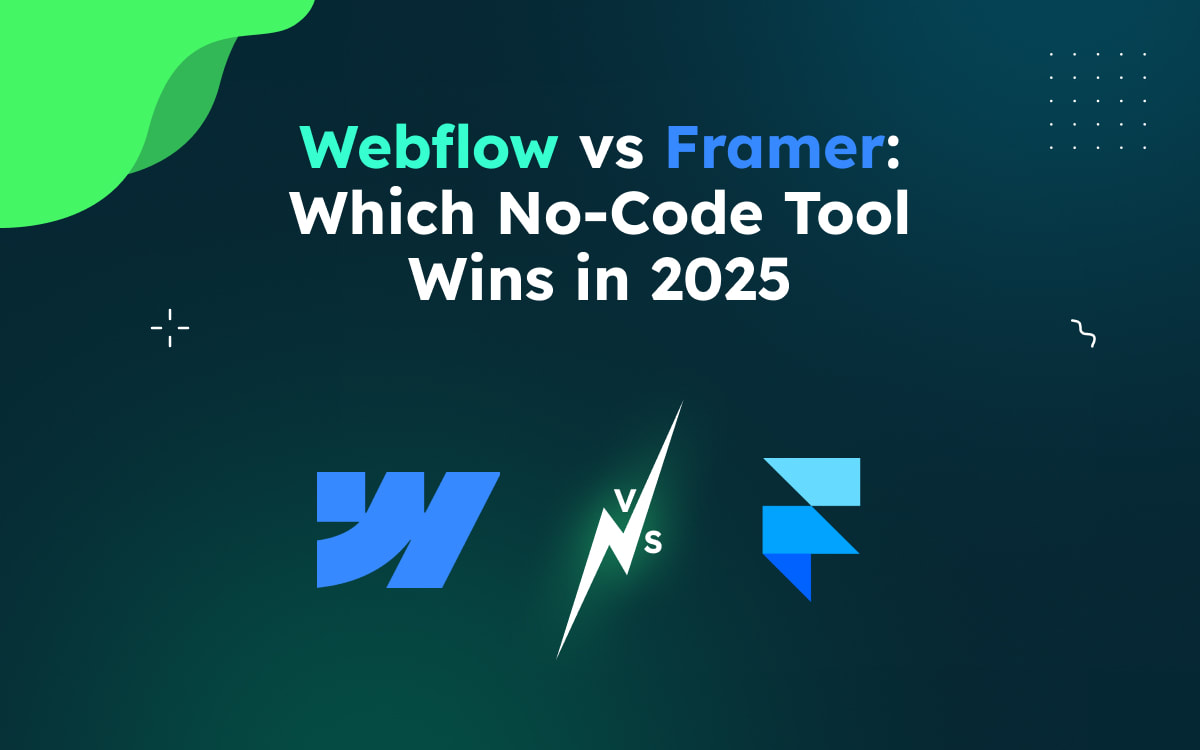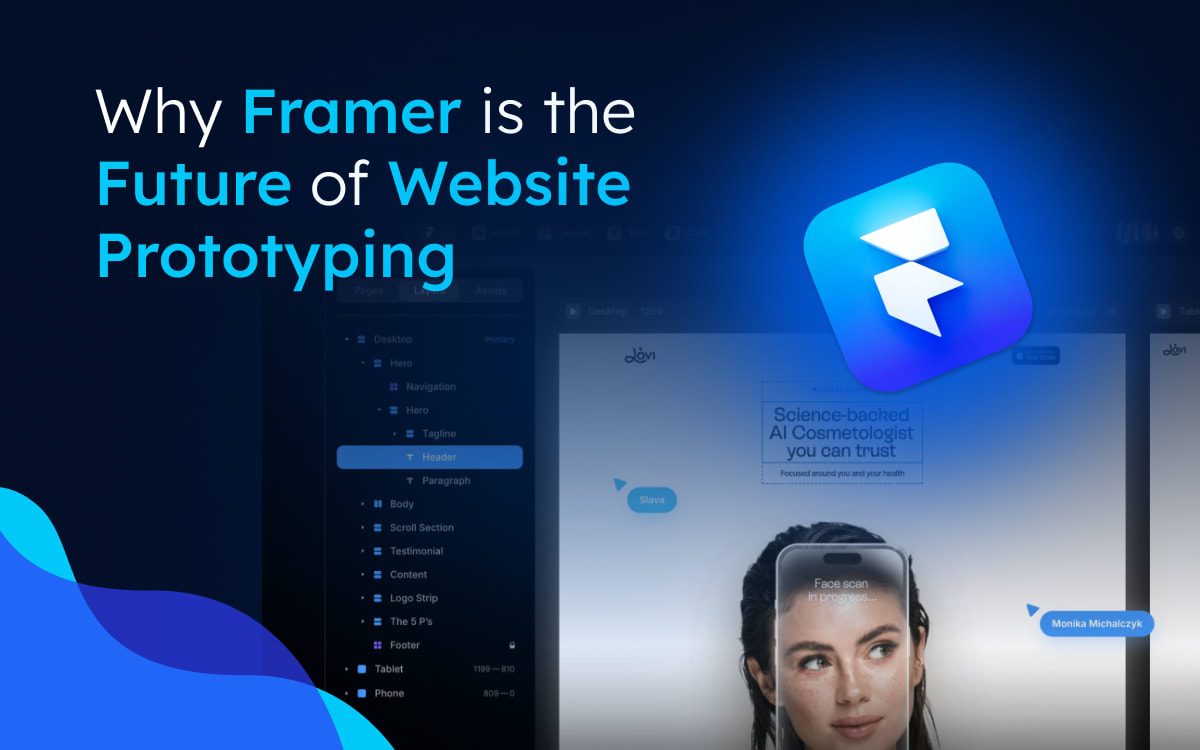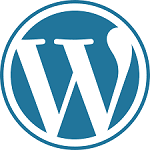Webflow vs Wix: Which Website Builder Should You Choose?
Webflow vs Wix: Which is better for your website? Learn the pros, cons, and key differences to make the right choice for your project.
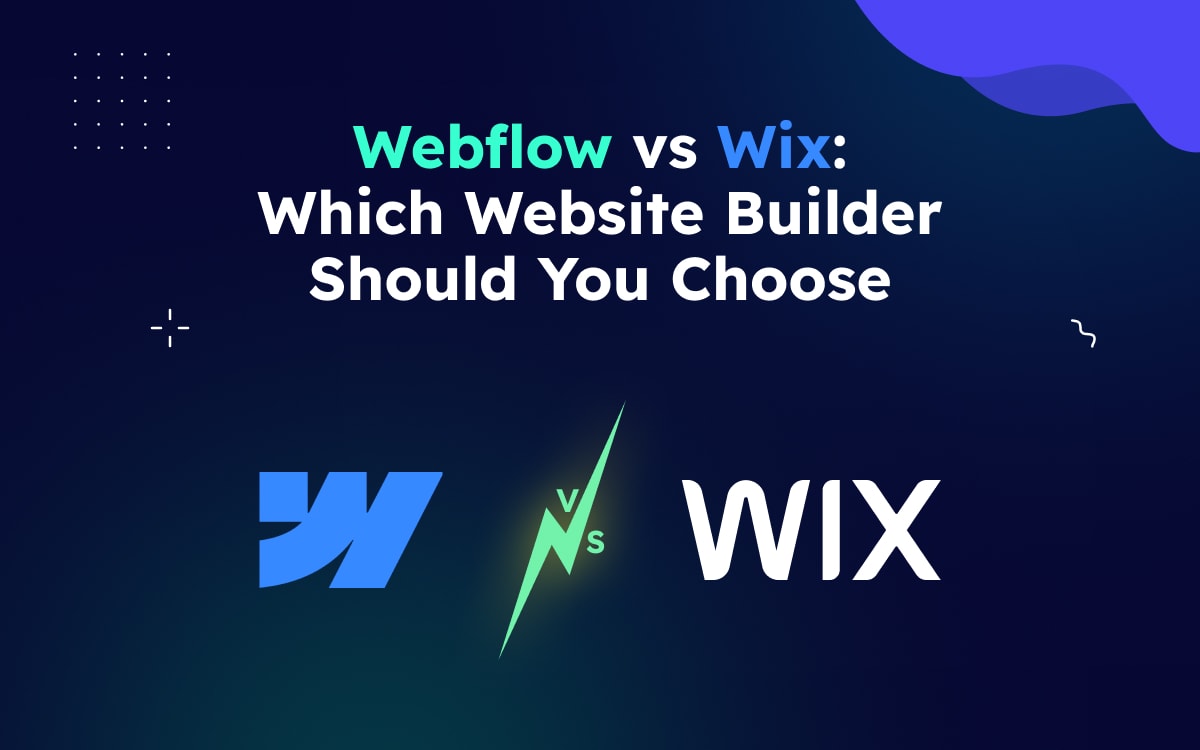
Trying to decide between Webflow vs Wix for your next website? You're not alone. Both are powerful tools, but they cater to very different needs. Wix shines with its beginner-friendly drag-and-drop editor, while Webflow is loved for its advanced design flexibility. If you're hitting Wix limitations as your site grows, Webflow might be the upgrade you need.
In this website builder comparison, we’ll explore how Wix vs Webflow stack up in design, features, and scalability so you can choose the right platform with confidence.
Webflow: Advanced Design with Full Creative Control
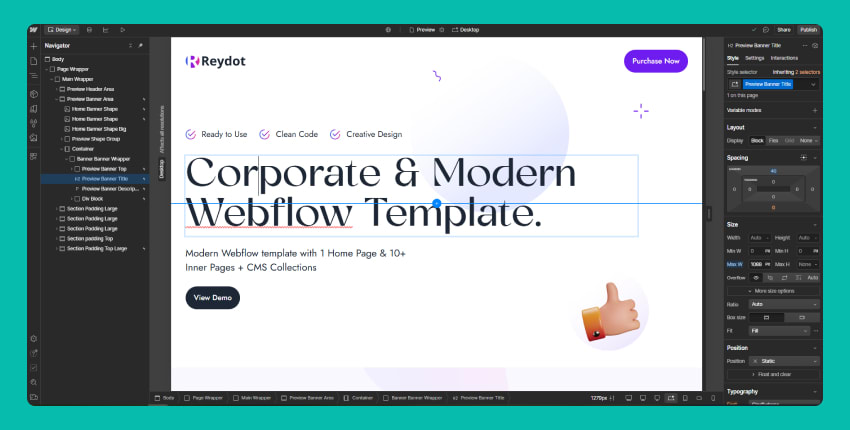
Webflow is a professional-grade website builder that combines the ease of a drag-and-drop editor with the power of clean, production-ready code. It's not just another website builder, it’s a full visual development platform made for designers, developers, and agencies. What sets it apart is its unmatched Webflow design flexibility, allowing you to customize every element on the page without touching a single line of code (unless you want to).
Key Features:
- Fully customizable layouts with advanced styling options
- Powerful CMS for dynamic content creation
- Built-in SEO tools and clean, semantic code output
- Advanced animation and interaction tools
- Responsive design for all breakpoints
- Fast hosting with built-in SSL and CDN
- Integrations with tools like Zapier, Figma, and Google Analytics
Visual drag-and-drop editor based on the CSS box model
Pros:
- ✅ Exceptional Webflow design flexibility
- ✅ Clean code generation suitable for production
- ✅ Fully responsive design tools
- ✅ Powerful CMS with custom content types
- ✅ Scalable for agencies and client work
Cons:
- ❌ More expensive than entry-level platforms
- ❌ Limited third-party plugins compared to others
- ❌ Requires design knowledge for best results
Wix: Simplicity and Speed for Everyone
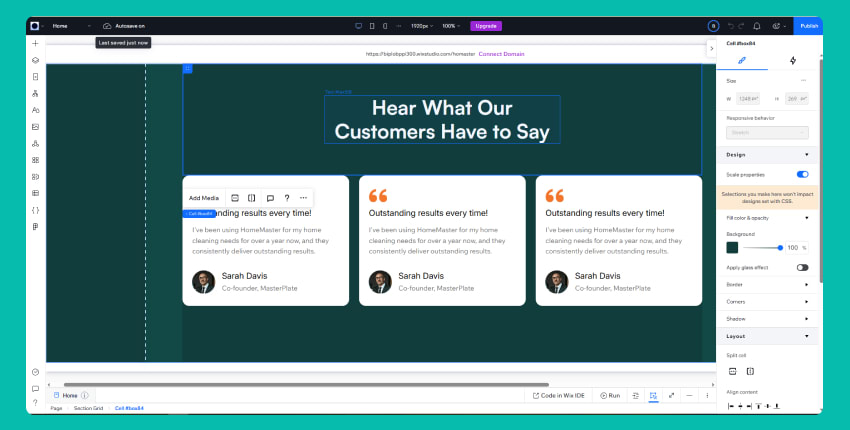
Wix is one of the most popular website builders in the world, and for good reason. It’s best known for its intuitive drag-and-drop editor, which makes building a website as easy as moving elements on a canvas. Whether you're creating a blog, business page, or online store, Wix provides a beginner-friendly environment that gets you online fast.
Key Features
- Intuitive drag-and-drop editor for effortless page building
- 800+ professionally designed templates
- Wix ADI (Artificial Design Intelligence) for instant site creation
- Built-in SEO tools and analytics
- App Market with 250+ integrations
- eCommerce functionality for small to mid-sized stores
- Blogging tools with categories, tags, and scheduling
- Free hosting is included with all plans
Pros:
- ✅ Extremely beginner-friendly interface
- ✅ Fast setup using ready-made templates
- ✅ Wide variety of apps and third-party integrations
- ✅ Affordable pricing with a free plan available
- ✅ Great for small businesses and personal projects
Cons:
- ❌ Limited design customization (Wix limitations)
- ❌ Less control over mobile responsiveness
- ❌ Generates bloated code, which may affect SEO
- ❌ Not suitable for complex or highly customized projects
Ease of Use: Drag-and-Drop vs Visual CSS Control
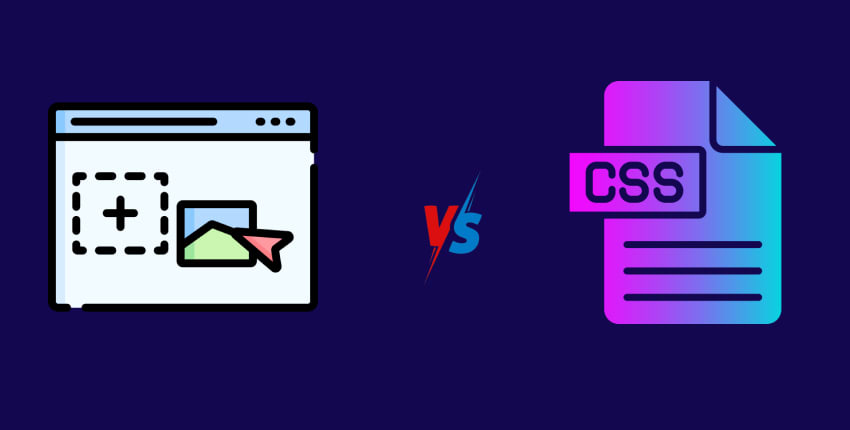
If you're looking for a tool that lets you launch a site fast, Wix wins in terms of simplicity. With its drag-and-drop editor, you can build and edit your site without any coding. Everything is visual, making it perfect for beginners, hobbyists, or small business owners who want a quick solution.
Webflow, on the other hand, comes with a learning curve. It offers a visual editor too, but it's much closer to how developers build sites with HTML and CSS. That means more control, but also more complexity.
Verdict:
- Choose Wix if you want a beginner-friendly platform.
- Choose Webflow if you're ready to invest time in learning for greater control.
Design Flexibility: Webflow Takes the Lead
One of the most significant differences in the Wix vs Webflow debate is design flexibility.
Wix allows you to customize templates, change fonts, add animations, and adjust layouts great for casual users. But there are Wix limitations when it comes to creating truly custom designs or managing complex layouts. Elements sometimes don’t respond well on mobile, and fine-tuning can be frustrating.
Webflow, by contrast, is built with designers in mind. You can design from a blank canvas or use templates and tweak everything: spacing, structure, breakpoints, animations, and more. Webflow design flexibility is ideal for creative professionals, agencies, and anyone who wants a pixel-perfect site.
Verdict:
- Wix is good for simple designs.
- Webflow is ideal for full creative control.
SEO and Performance: Clean Code Matters
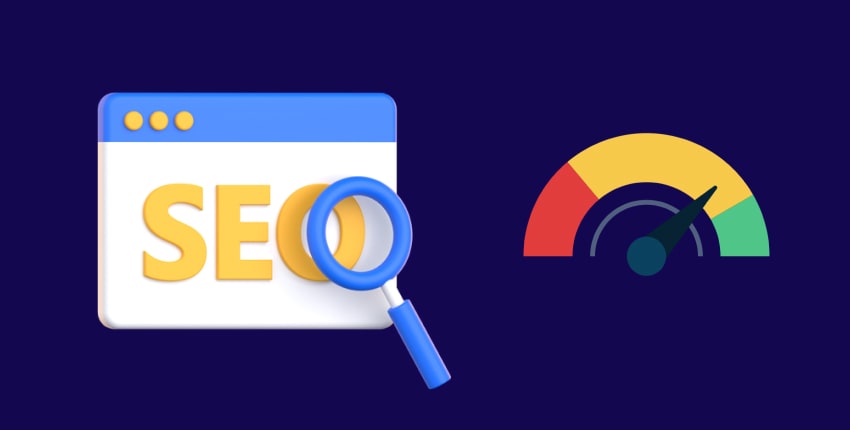
In 2025, SEO and page speed are more important than ever. Google favors sites with clean code, fast load times, and mobile optimization.
Wix has made major improvements in SEO, offering customizable URLs, meta tags, and mobile-friendly templates. However, it still generates bloated code that can slow down your site.
Webflow produces cleaner, semantic HTML and CSS, giving you more control over your site structure. It also supports advanced SEO tools like Open Graph, canonical tags, and schema markup.
Verdict:
- Wix is fine for basic SEO.
- Webflow gives you the edge in performance and control.
CMS and Content Management
Both platforms allow you to manage blog posts, portfolio items, and dynamic content. But they do it differently.
Wix offers a basic CMS with pre-set fields and easy-to-use forms. It works well for simple blogs or portfolios, but lacks flexibility for complex content types.
Webflow's CMS is far more customizable. You can define your own content structures, create conditional visibility rules, and use collections to manage anything from blog posts to team members or products.
Verdict:
- Wix works for smaller, simpler sites.
- Webflow is the go-to for content-heavy projects.
Pricing and Value
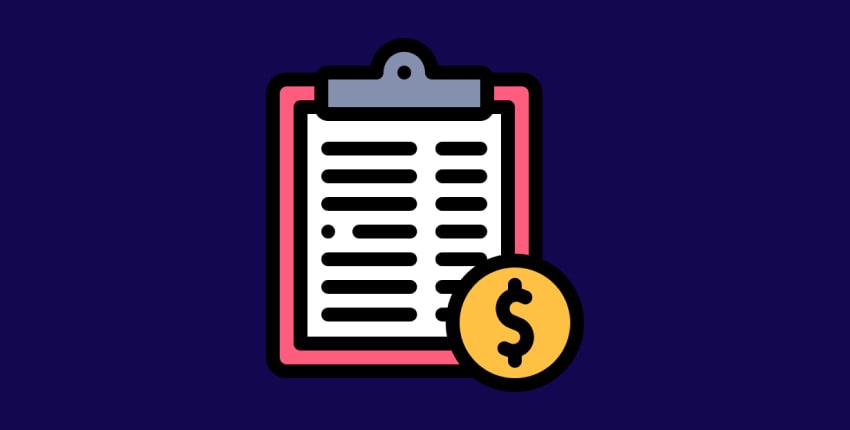
Wix has more budget-friendly plans, starting with a free tier (with ads) and premium plans starting around $17/month. It’s a great entry point for personal websites or small business sites.
Webflow’s pricing starts a bit higher, with the most popular CMS plan starting at $23/month.
| Plan | Webflow | Wix |
|---|---|---|
| Free | $0 | $0 |
| Entry-Level | $18 | $23 |
| Standard | $29 | $34 |
| Business | $49 | $42 |
| High-End | Custom | $159 |
Final Thoughts: Which Should You Choose?
If you're still asking, “Webflow vs Wix: Which Website Builder Should I Choose?”, here’s a quick summary:
| Features | Webflow | Wix |
|---|---|---|
| Ease of Use | ⭐⭐⭐⭐ (Learning Curve) | ⭐⭐⭐⭐⭐ (Beginner-Friendly) |
| Design Flexibility | ⭐⭐⭐⭐⭐ (Advanced Control) | ⭐⭐⭐ (Good for basic designs) |
| SEO Performance | ⭐⭐⭐⭐⭐ (Clean Code & Control) | ⭐⭐⭐ (Improved but Limited) |
| CMS Capabilities | ⭐⭐⭐⭐⭐ (Custom content types) | ⭐⭐ (Basic content tools) |
| Pricing | ⭐⭐⭐ (Higher, but more features) | ⭐⭐⭐⭐ (Affordable plans) |
Conclusion
For casual users or small businesses that need a quick, hassle-free website, Wix is a solid choice. Its drag-and-drop editor makes setup easy, and it covers the basics well.
But if you’re a designer, developer, or business owner who wants full control over the look, feel, and performance of your website, Webflow is the smarter investment. The Webflow design flexibility and professional features far outweigh Wix limitations as your site grows.
So, in the battle of Wix vs Webflow, the winner depends on your long-term goals. Choose wisely and build something great.
FAQ
Find answers to common questions about Webflow vs Wix. We've compiled everything you need to know in one convenient place.
Webflow is better than Wix for SEO?
Yes, Webflow offers more advanced SEO features like clean code, custom meta tags, and 301 redirects. Wix has improved but still lacks some flexibility.
Which platform is better for designers?
Webflow is built for designers. It offers full control over layout, interactions, and responsiveness making it ideal for creative freedom.
Do both platforms offer free plans?
Yes. Both Webflow and Wix offer free plans, but they include platform branding and limited features. Custom domains require a paid plan.
Can I switch from Wix to Webflow or vice versa?
Not directly. You would need to rebuild your site manually, as there's no one-click migration between the two.

